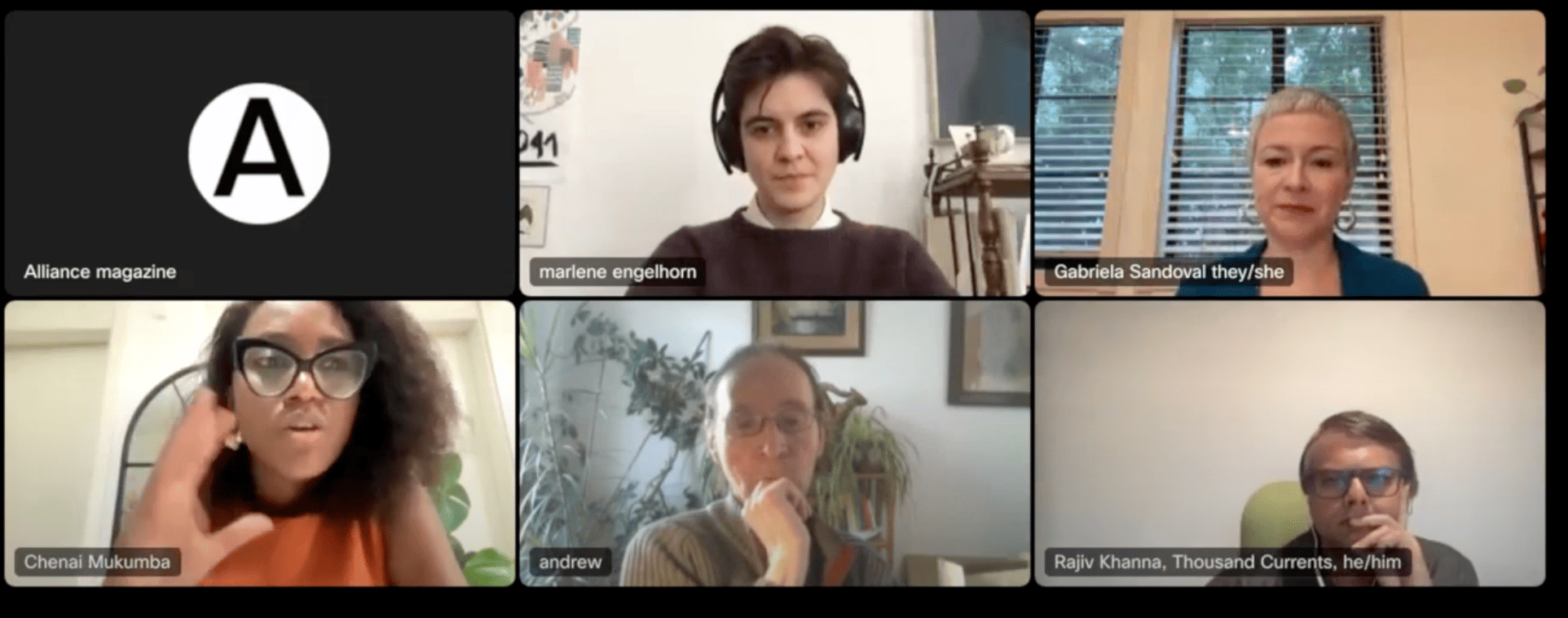Date

TJNA Executive Director Chenai Mukumba has called for a resetting of relationships between African nations and philanthropies to advance systemic and structural changes that will build progressive states with efficient tax systems to achieve self-reliance and meet their developmental objectives.
Speaking during a webinar organised by Alliance Magazine and titled “Taxation and Philanthropy; close relatives or complete strangers” Ms Mukumba noted the importance of getting progressive taxation rights as key to achieving autonomy and independence that African countries need in addressing poverty, inequalities, and all crises that the continent continues to face.
“A progressive tax system, one in which the wealthiest contribute the most, could help African governments reduce dependence on external funding and create a sustainable stream of revenue to tackle challenges such as poverty, inequalities and achieve tax justice.” Ms Mukumba noted.
Ms. Mukumba further noted that governments that rely on efficient domestic taxation systems are more responsive to the needs of their citizens, as opposed to governments dependent on development assistance or even private financing, which can create unpredictable and short-term solutions.
However, the journey to achieving tax justice for Africa is often complicated owing to resistance from wealthy individuals and corporations who evade their tax obligations, which limits African governments' ability to raise the necessary resources for public and social services.
Ms Mukumba stressed that owing to this, the continent loses nearly USD 100 billion annually due to tax avoidance by multinational corporations and wealthy individuals, a figure that by far surpasses the financial aid Africa receives through development assistance and private financing combined.
“By investing in tax systems, Africa can ensure a more equitable distribution of resources and strengthen its governance capacity. Philanthropy, while beneficial in filling short-term gaps in areas such as health and education, should not be a substitute for a robust tax system.” Ms Mukumba said.
According to Ms Mukumba the solution therefore lies in empowering African governments to raise revenues domestically and rely less on external donors. This requires building capable states, strengthening tax administrations, and promoting accountability in governance so that taxation, not philanthropy becomes the primary driver of development across the continent.
The webinar sought to discuss the role of philanthropy as a voluntary form of wealth redistribution and the logic behind part-funding of public services. It also sought to discuss the effects of tax concessions in increasing philanthropy and its effect in aggravating inequalities in the continent.
Other speakers at the webinar included Marlene Engelhorn, Activist, philanthropist and co-founder of taxmenow; Gabriela Sandoval, Executive Director, Excessive Wealth Disorder Institute and Rajiv Khanna, Vice President, Center for Transforming Philanthropy at Thousand Currents.
For more information on our partnerships, please contact; nbusingye@taxjusticeafrica.net.